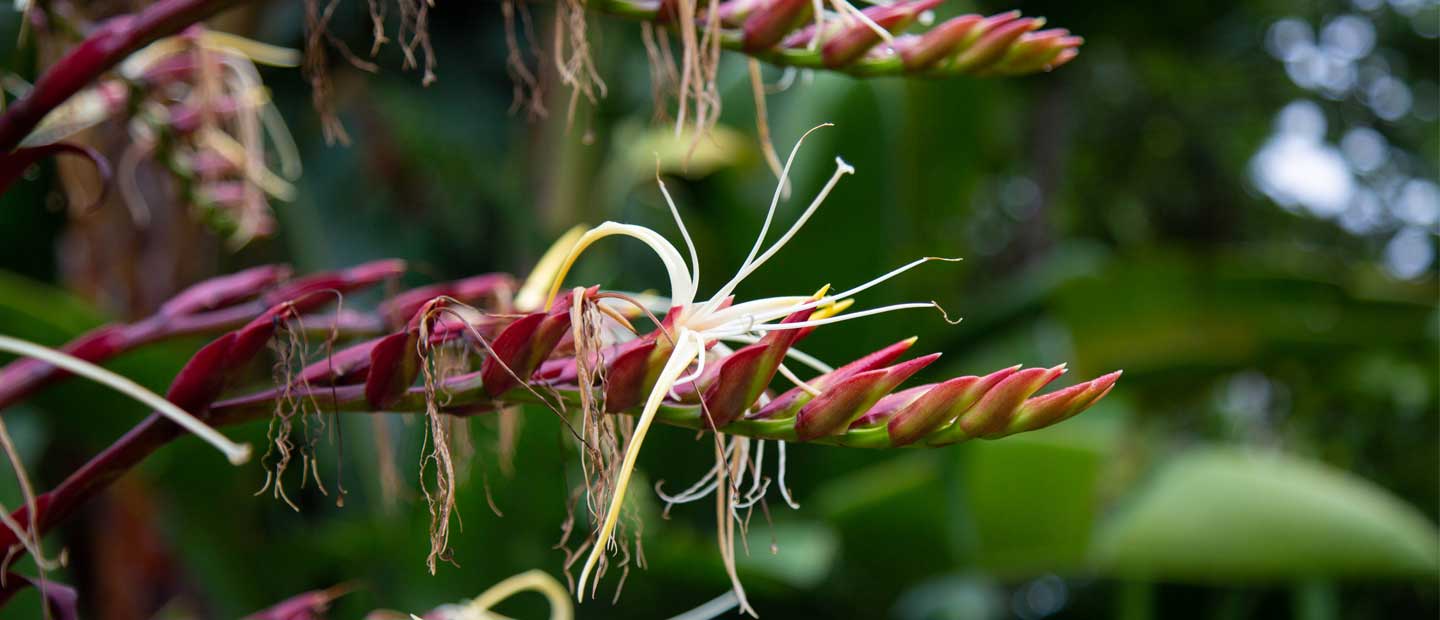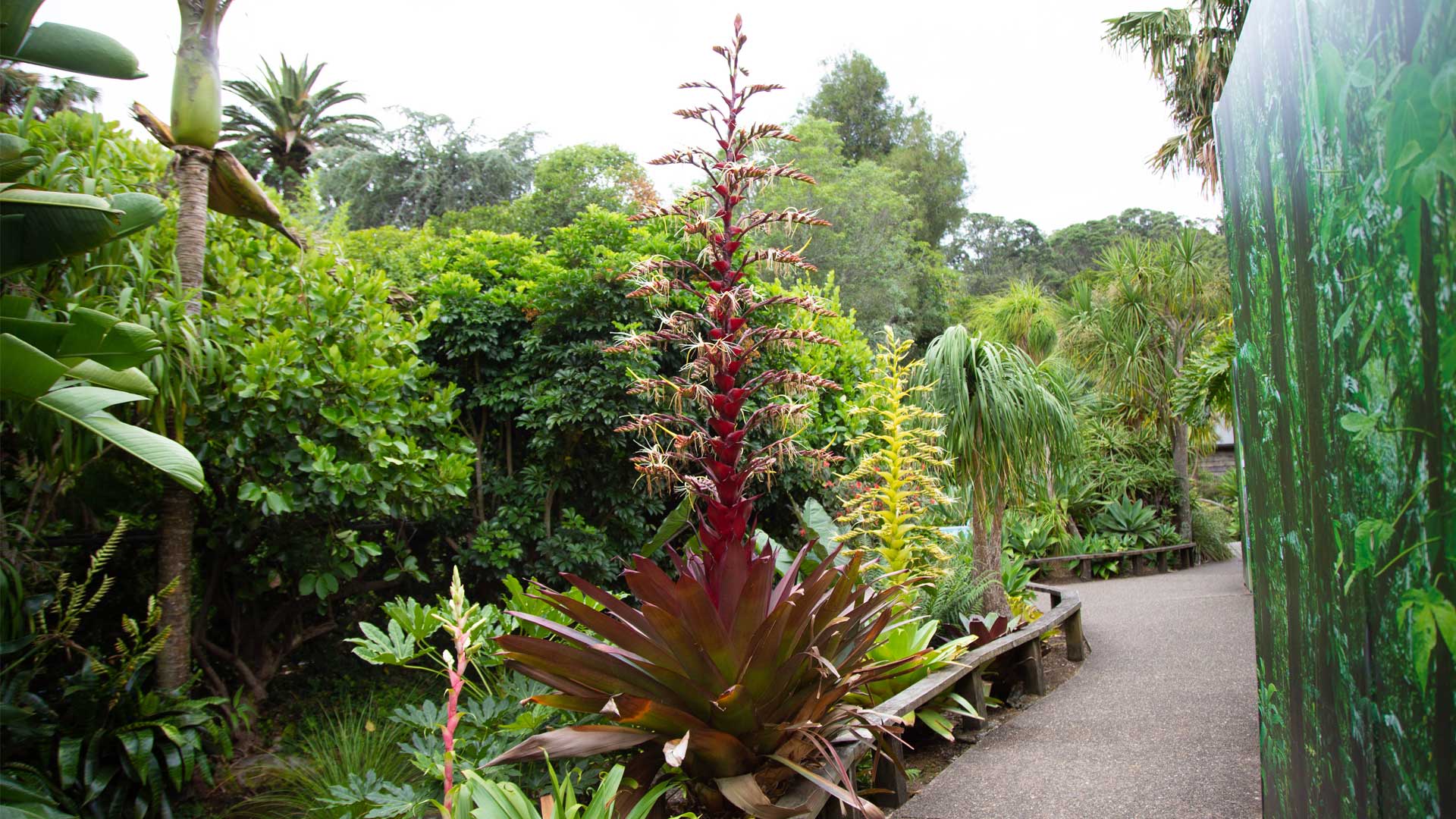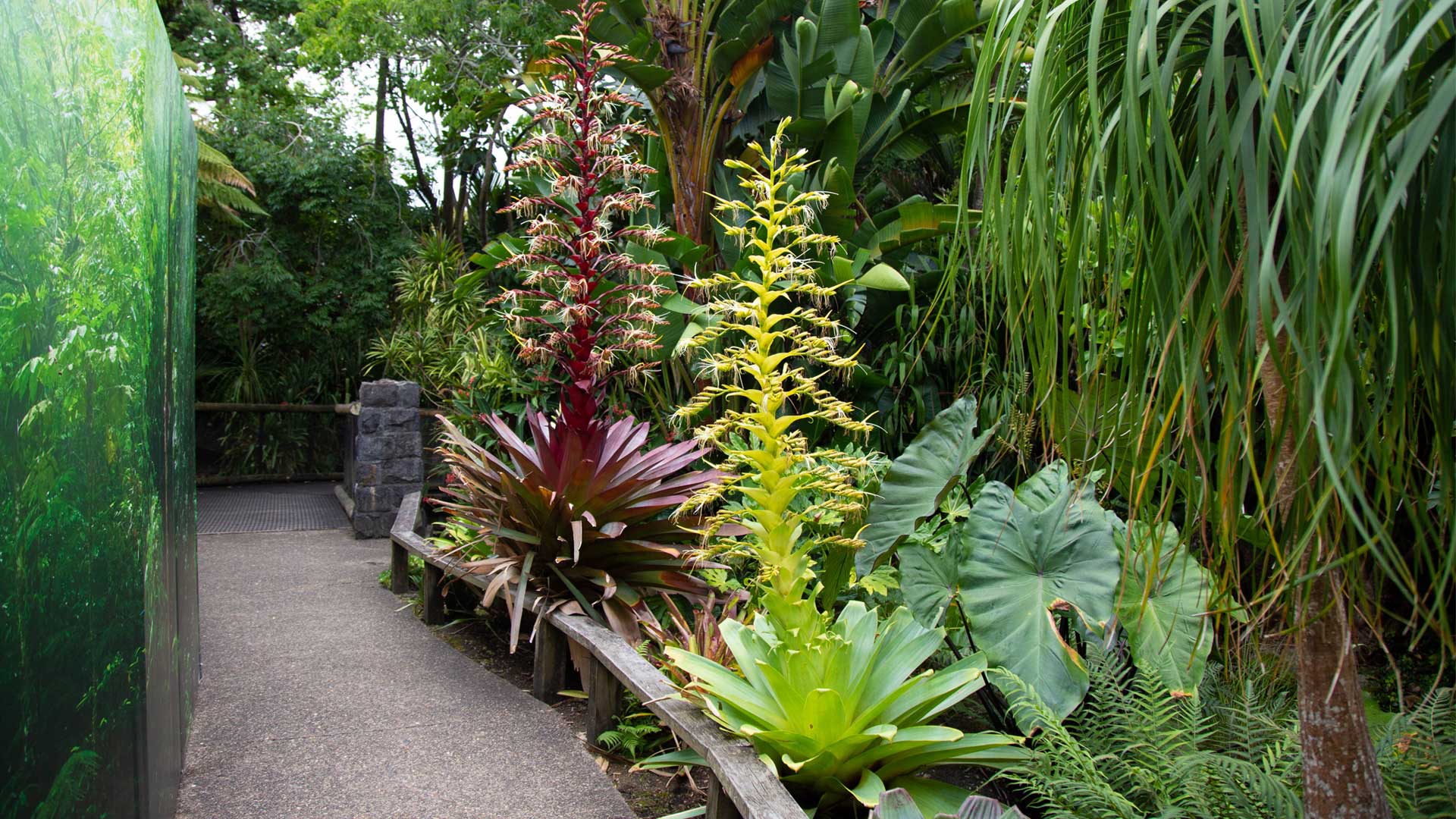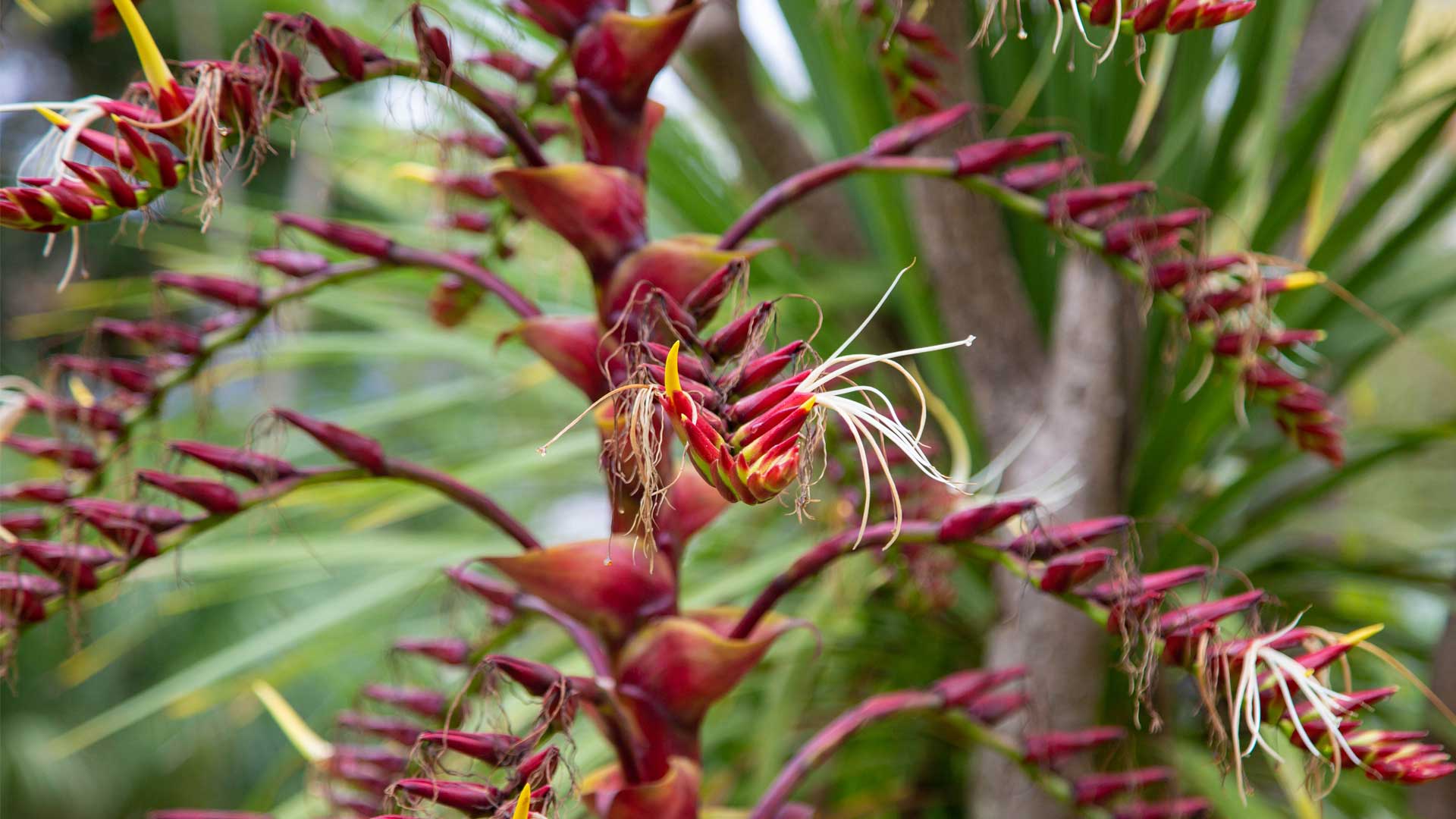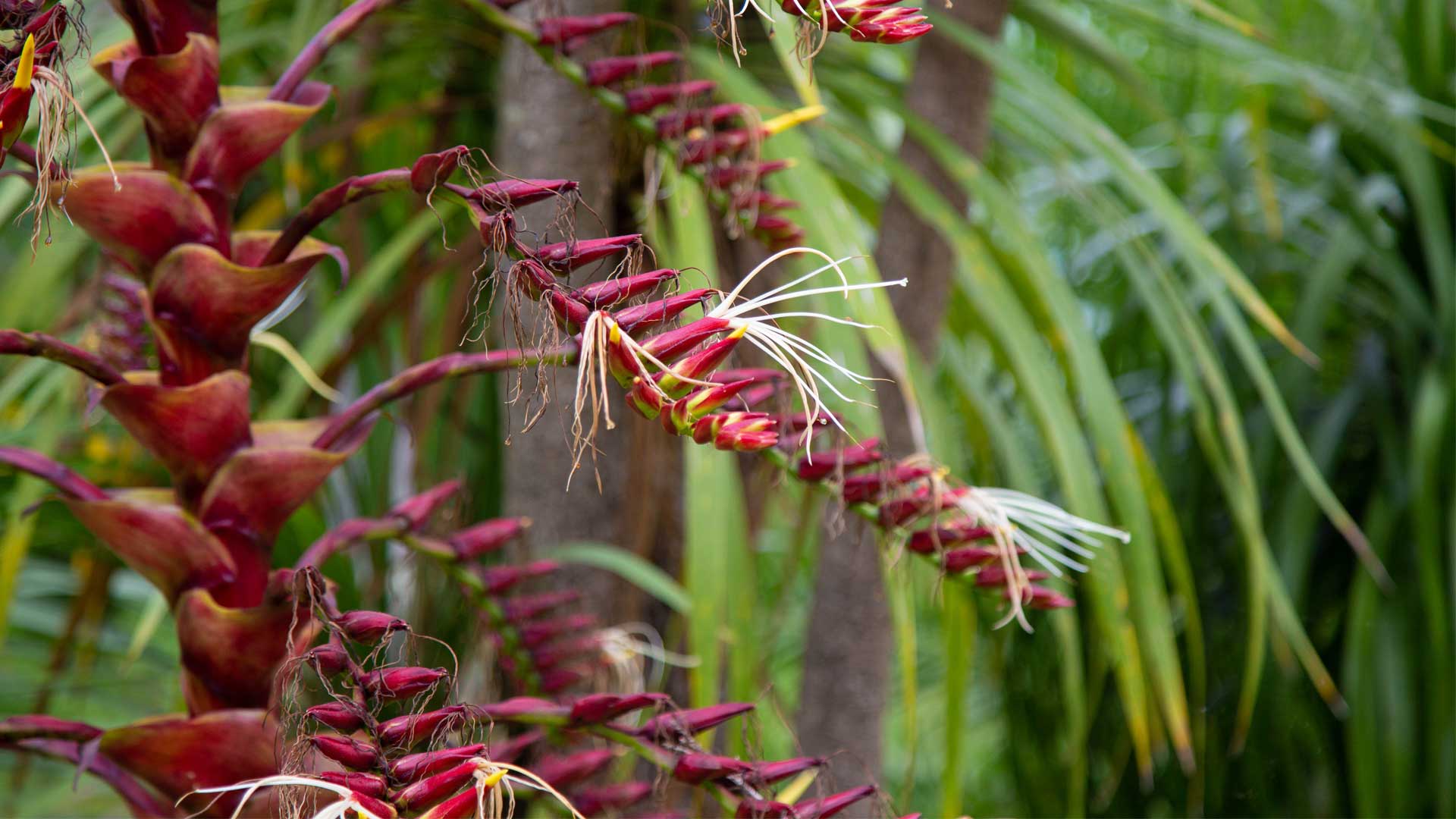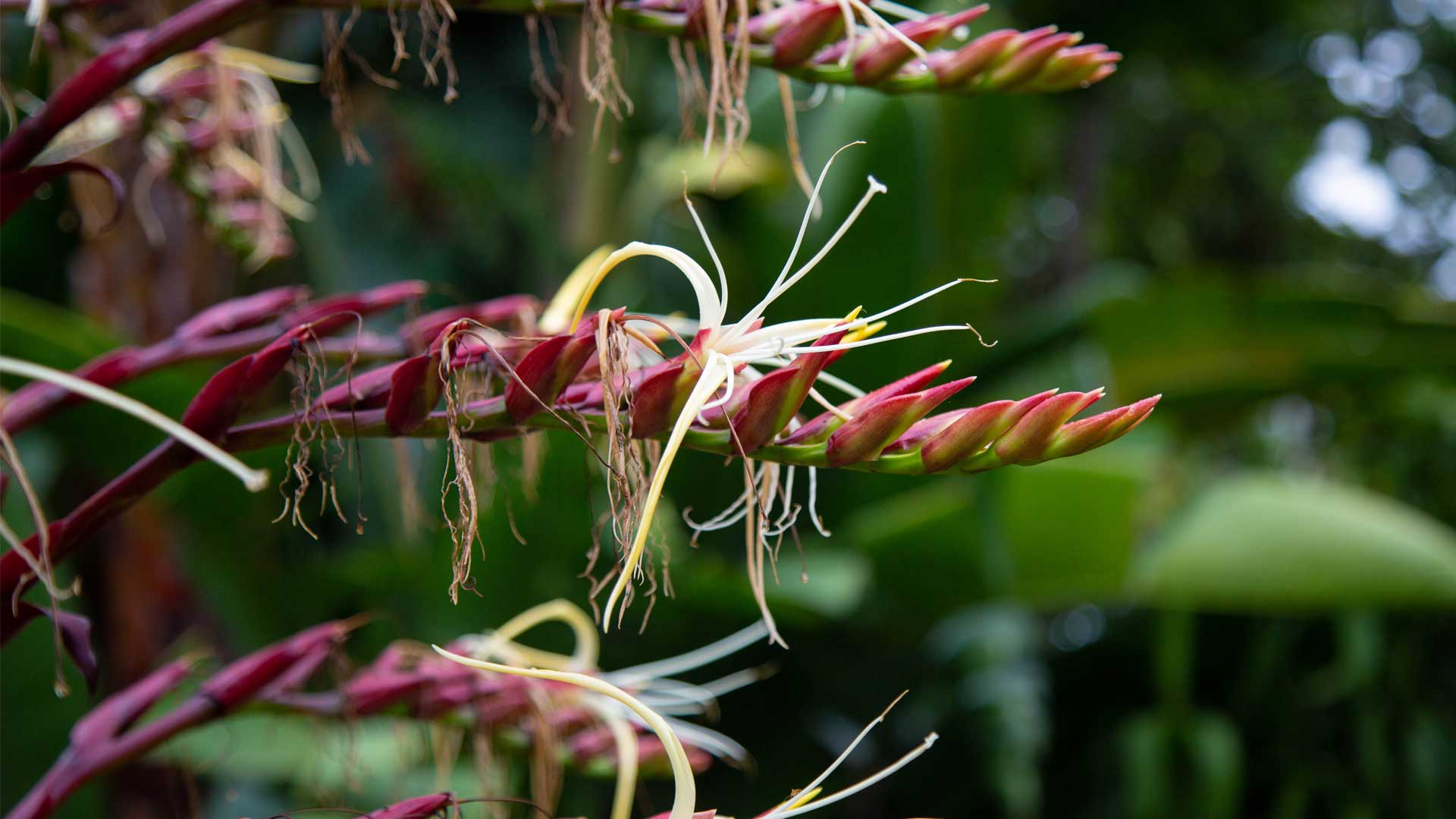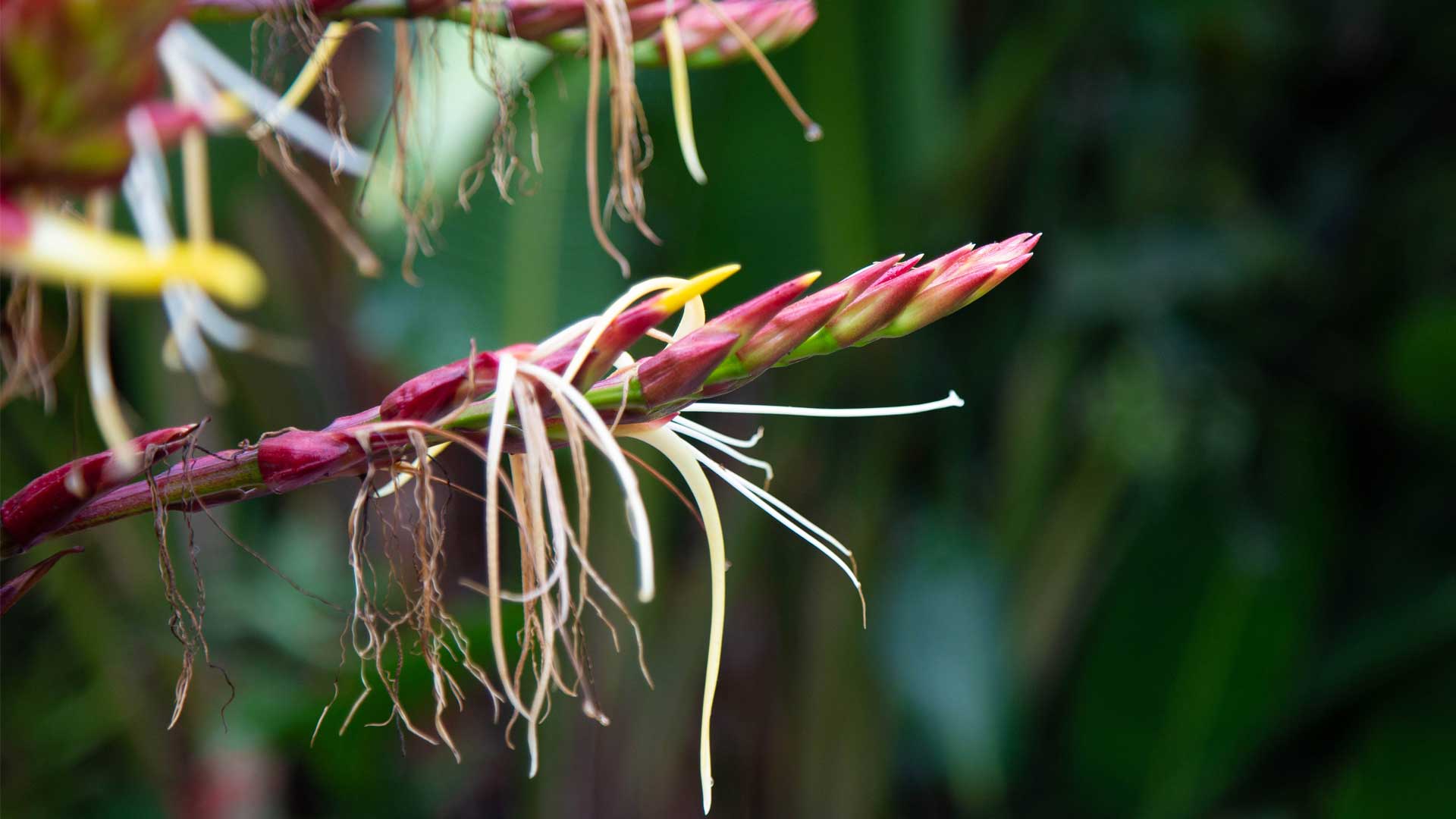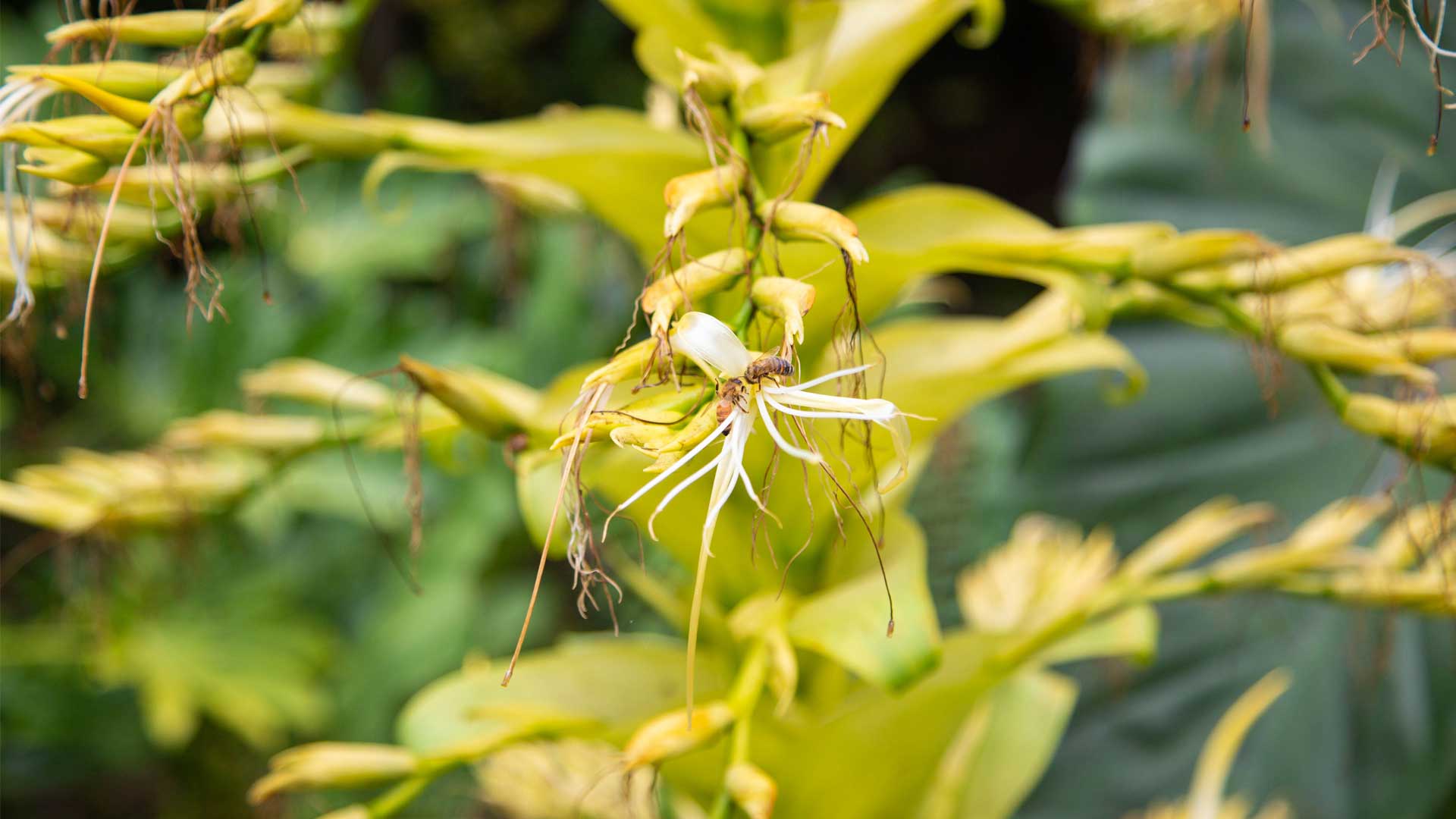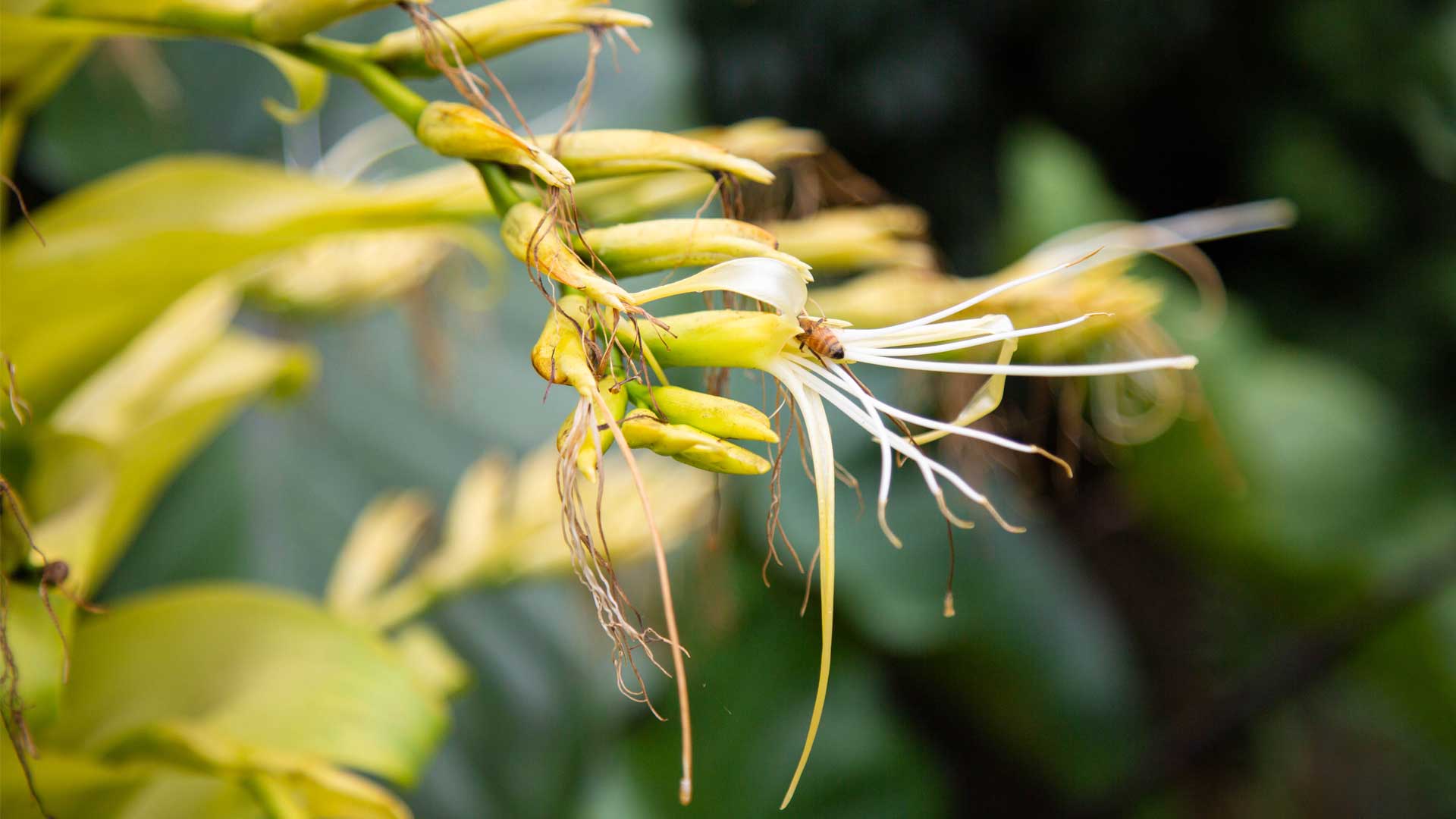In this month’s horticulture blog, we’re focusing on a beautiful flowering bromeliad, Alcantarea imperialis, and the clever adaptations which have allowed it to survive in harsh conditions.
Native to the Serra dos Órgãos mountain range in Rio de Janeiro, Brazil, this striking and impressive specimen is able to grow in high altitudes of up to 1,500 metres above ground, finding its niche within cracks and crevices of rocky slopes.


